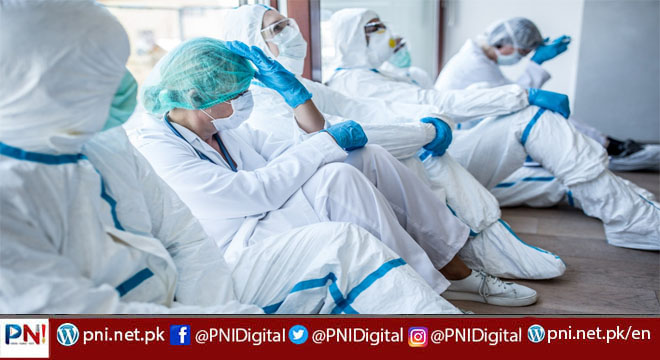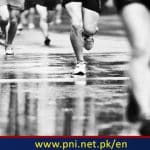ISLAMABAD, SEP 01 (Online): A new study has recently revealed the extent of insomnia and associated symptoms of anxiety, depression, and traumatic response among medical practitioners in China during the height of the COVID-19 outbreak.
The research, which now appears in the journal Frontiers in Psychiatry, highlights the effects of the pandemic not only on people’s physical health, but also on their mental health.
The rapid spread of SARS-CoV-2 has put severe pressure on health systems around the world. Understandably, there has been much emphasis on the effect of the pandemic on the health of the population, as well as the consequences of the potential loss of life from overwhelmed public health systems.
The effects on frontline medical practitioners have also been severe. Healthcare workers are one of the groups at greater risk of infection. However, the negative psychological effects of working on the frontline of the pandemic have also been significant.
Dr. Bin Zhang, the corresponding author of the article, and his colleagues describe the extremely difficult conditions that healthcare workers experienced during the height of the outbreak in China.
“After brief training,” they write, “medical staff were incorporated into the frontline battle against COVID-19. Additionally, it was not possible to set up isolation rooms consisting of an anteroom and clean zone because of insufficient equipment once the hospital rapidly became a designated COVID-19 center.”
“Medical staff must be equipped with full-body protective equipment under negative pressure for more than 12 [hours], including double-layer protective equipment, double-face masks, double-layer gloves, isolation caps, foot covers, and protective glasses.”
“To avoid being infected while removing protective equipment, staff members cannot eat, drink, or use the bathroom during working hours. Many of them are dehydrated due to excessive sweating, and some develop cystitis and a rash. Medical staff working in the quarantine area must always maintain close contact with [people with the infection].”








